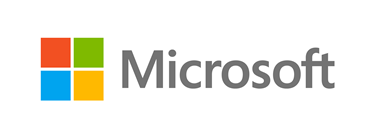Microsoft Retail Experience Center Tour Shows Innovation
By Brianna Ahearn, contributing writer

A new tour of the Microsoft Retail Experience Center for Seattle's KING 5 in Redmond shows consumers and retail experts the evolving face of retail technology. In a news post on June 2, KING 5's Josh Green gave the first video tour of the facility. The video detailed the innovation and tricks of the trade Microsoft offers brick and mortar retailers to compete with the fast-paced world of online retail.
The 20,0000 square foot center opened in 2009 in Redmond, and features a full-functioning immersive store experience, with every aspect of the in-store experience replicated, from merchandise counters to quarters for shipping and receiving. When initially opened, Microsoft referred it as “part of Microsoft’s ongoing investments in exploring how technology-driven innovations can enhance consumers’ lives and shopping experiences.” Green's post and corresponding video demonstrate how the center is working on ways to streamline retail operations, cut costs, and boost sales with technology.
The private facility isn't open to the public, and tours are given by invitation to members of the press, Microsoft partners, and customers. KING 5's feature offers a rare look at the innovation Microsoft has developed in recent years for retailers and their customers. One of the most notable elements profiled in the report is beacon technology, which has risen in popularity in recent years, as evidenced by the new report by Datacomm which predicts beacon technology to spawn a $10 billion dollar market by the year 2020. Beacon technology operates with small devices smaller than a cell phone or baseball, that communicates with users' cell phones and shares a unique identifier. The video technology demonstrated a beacon being used in a coffee retailer's environment, where the barista was notified via the beacon that a customer was in the proximity, and receives the customers' preferences for drinks, so the barista can prepare their order.
In the words of Microsoft, their beacon technology can tell stores who their shoppers are, how long they've been in the store, and if they've been assisted. They can also tell what products a customer is likely to purchase. The video report also included a dressing room that knows what items a customer is bringing to try on and features a touchscreen where customers can navigate to see what other sizes and colors are available, plus a high tech mirror that lets the user have a complete picture of what their outfit looks like, with a full 360 degree view. Another mirror was developed for stores that sell cosmetics and accessories, and lets customers see what the makeup or accessories will look like on their person without the individual needing to try them on.
Many of the retail technologies demonstrated in the video is already in use by retailers, though Microsoft didn't name any stores openly. The video tour included a scenario of a customer shopping for a video game, in a retail setup similar to that of GameStop, and demonstrated how customers can have game demo videos sent directly to their mobile device when they walk into a store. GameStop recently signed up with Microsoft's Azure cloud to help create new video overlays and social media links using a mobile device's camera.
